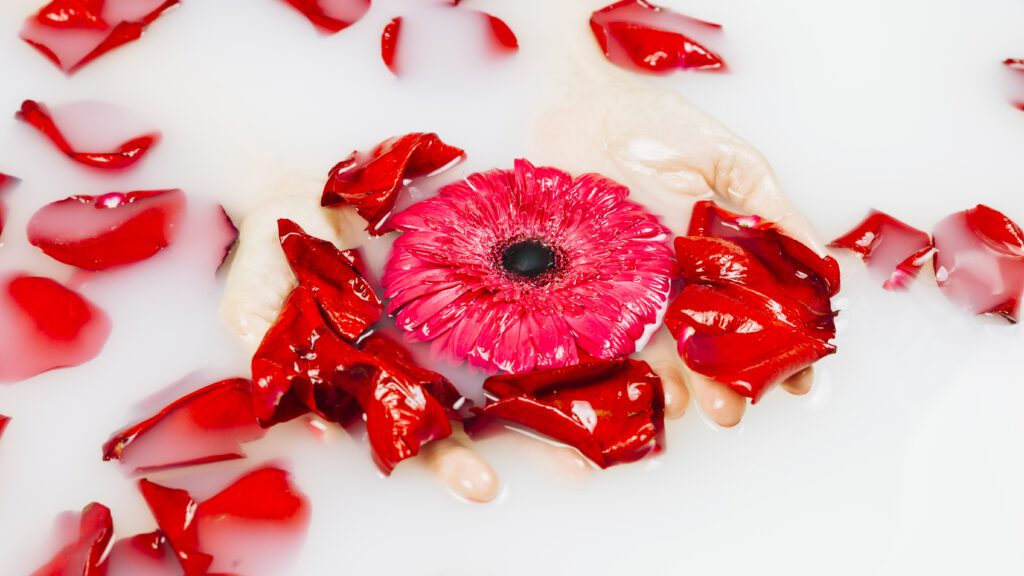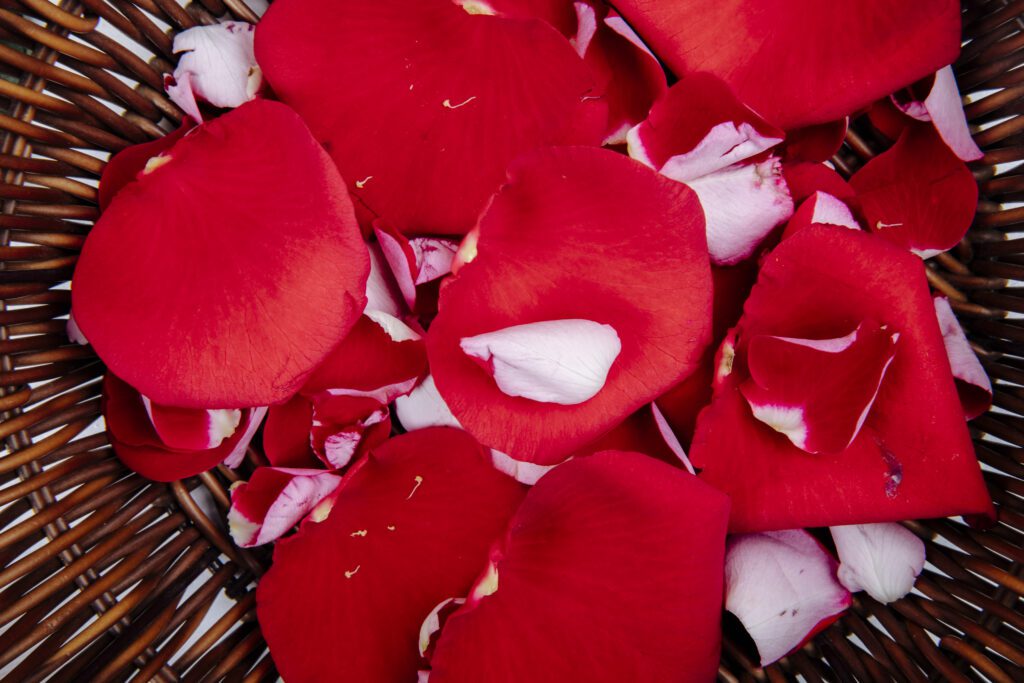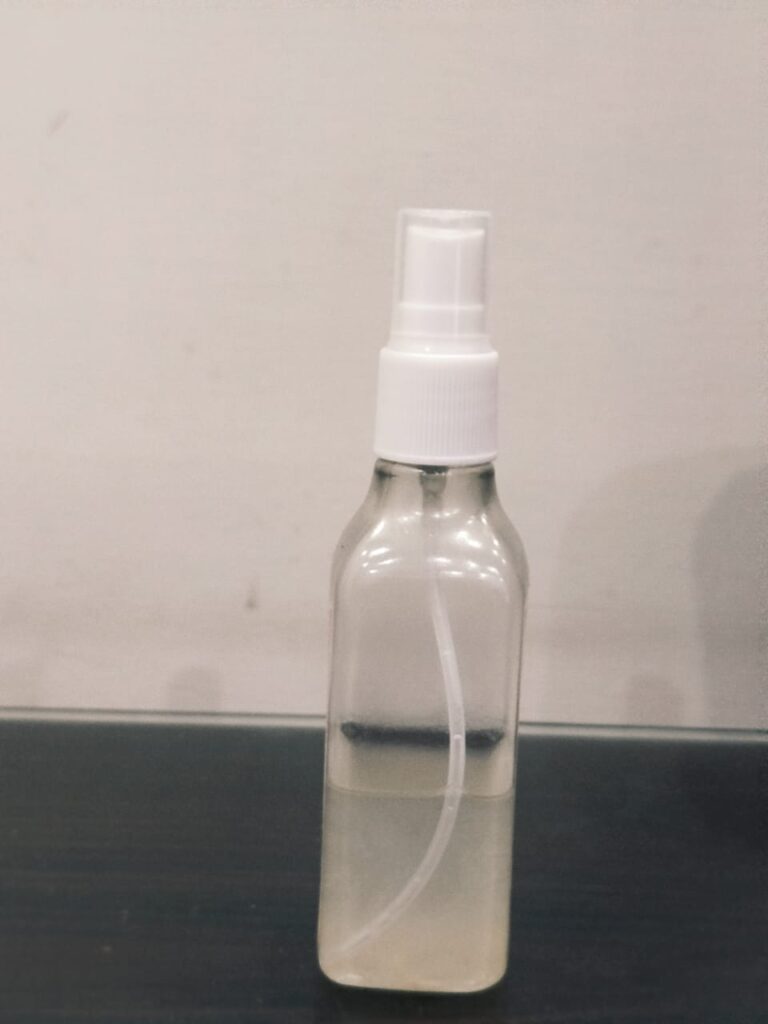Rosewater for Face Benefits plays a important role. Rosewater has long been recognised as a vital ingredient in skincare routines, renowned for its healing and soothing properties. Extracted from rose petals, this natural ingredient is traditionally included in beauty routines to nourish and tone complexion. Recently, however, rosewater has gained massive popularity thanks to its natural ingredients that target many different skin conditions, be they oily skin, dry skin, or sensitive complexion issues. No matter your situation, rosewater offers many advantages that may help in your own personal journey towards better skin. In this article we’ll look at its many rosewater benefits on face care as well as frequently asked questions regarding rosewater skin care solutions.

What Is Rosewater?
Rosewater is produced through distilling rose petals with steam. This process extracts essential oils, producing an aromatic and relaxing liquid known for its aromatic fragrance and anti-inflammatory benefits. Rosewater has long been utilised as an ingredient in skin care products like cleansers, toners, masks, and facial mists due to its ability to nourish, balance, and rejuvenate the skin.
Rosewater Benefits for Facial Skin
Hydrate and Moisturise the Skin
Rosewater is an excellent natural moisturizer. It helps balance pH levels on your skin while offering moisture without making you look oily, effectively locking in moisture to avoid dryness and create soft, smooth skin. Rosewater may even provide relief for sensitive skin conditions by offering non-oily solutions to ensure continuous hydration throughout the day.
Soothe Inflammation and Reduce Redness
Rose water has many notable benefits for your skin, one being its anti-inflammatory properties that help ease inflammation and irritation on your complexion. Rosewater’s anti-inflammatory agents help soothe redness caused by conditions like rosacea, acne, or other skin disorders, while its soothing qualities also ease discomfort associated with conditions like eczema or psoriasis. If applied directly onto affected areas, rosewater may provide cooling, soothing relief.
Balances Oily Skin
Rosewater’s natural ability to astringent your skin makes it an excellent solution for those with oily complexions, providing it with natural oil production control. By opening up pores and dissolving excess sebum from them, rosewater helps control oil production while decreasing chances of acne breakouts or clogged pores from occurring, ultimately helping prevent acne outbreaks altogether. Furthermore, rosewater balances oil production for a more matte and even appearance in complexion.
Rosewater Acts as a Natural Toner
Rosewater acts as a natural toner that tightens pores and tones skin. Applying rosewater directly onto your face when cleansing can help restore pH balance to restore skin hydration levels and maximise the efficacy of skincare products used on it. Plus, its cooling and refreshing sensation reenergises you after an exhausting day!
Brightens the Skin
Regular use of rosewater may help balance and brighten skin complexion, thanks to its abundant supply of antioxidants like Vitamin C that help defend against free radical damage, oxidative damage, and other factors associated with premature ageing. Rosewater helps enhance appearance by creating natural luminosity while simultaneously fighting dullness caused by pollution exposure or environmental stressors.
Reduce Acne and Pimples
Rosewater contains mild antibacterial properties that fight acne-causing bacteria on your face. When applied directly, rosewater can help reduce pimple development as well as prevent breakouts by cleansing and soothing skin pores, while its anti-inflammatory properties aid in diminishing redness and lesions already present on skin surfaces.
Fight Signs of Ageing
Rosewater contains antioxidants that can aid in combatting signs of the ageing process and the appearance of wrinkles and fine lines by stimulating collagen, an essential protein that keeps skin flexible and firm. Furthermore, its antioxidants protect it against environmental harm as well as premature ageing for younger-looking skin.
Rosewater Can Improve Skin Texture
Regular application of rosewater may help the skin’s texture by diminishing visible signs of rough patches and dry spots, thanks to its soothing and hydrating properties. Rosewater also helps decrease marks and spots as time goes on, creating more uniform skin with an aged, smoky look.
Natural Makeup Remover
Rosewater can also serve as an effective natural makeup remover, being gentle enough for use around the delicate eye area and gently dissolving makeup and impurities without creating irritation. Furthermore, using rosewater as a makeup remover ensures your skin remains nourished rather than drying out like other options might do.
Protect Against Sun Damage with UV Filters.
Rosewater contains antioxidants that can provide protection from ultraviolet damage to the face. While not an alternative to sunscreen, rosewater may protect your skin from sunburn, dark spots, and premature ageing resulting from sunlight’s radiation—including sunburn. Plus, its soothing properties help ease any irritation caused by direct sunlight.


Rosewater can help hydrate the face by giving essential oils a jolt. Here’s how.
As a toner: rosewater can help tone and reenergise your skin by shrinking pores and balancing oil production. Apply it using cotton pads after cleansing for maximum benefit.
Rosewater can serve as an all-natural makeup setting spray: helping keep all your makeup in place and providing natural luminosity. Simply spray rosewater over your makeup for the optimal setting effect!
Hydrating Spray: Keep a bottle of rosewater in your purse to use as a hydrating mist throughout the day and use it whenever your face needs an instant hydrating boost. Apply as necessary!
Make an Easy Hydrating Facial Mask: By mixing rosewater with other ingredients such as yoghurt or honey, you can create an effective facial mask that hydrates quickly. Apply for approximately 15 minutes, and wash off afterward to reveal soft, rejuvenated skin.
Introduce Rosewater: Into Your Daily Skincare Routine Rosewater is an effective component of daily skin care regimens, whether morning or evening, working well alongside cleansers, moisturising serums, moisturisers, or any other product you use on the skin.


Side Effects and Considerations of Methamphetamine Therapy
Rosewater is generally safe for most skin types; however, if you have particularly sensitive skin, it’s advisable to conduct a patch test prior to applying it on the entire face. Instances of redness, irritation, and allergic reactions have been observed with rosewater use; for this reason it should be discussed with a dermatologist beforehand before adding rosewater into your skincare regime; any signs of irritation should prompt its cessation immediately.
Frequently Asked Questions (FAQs):
1. Am I required to use rosewater every day?
Yes, it is soft enough to use as part of your everyday skincare regimen without irritation. The water hydrates, tones, and soothes your skin without creating dry patches on its surface.
2. What is the best way to store rosewater?
Rosewater should be stored in an airtight, cool space out of direct sunlight; to extend its shelf life further, keep it refrigerated.
3. Can rosewater help to reduce dark circles under my eyelids?
Rosewater contains anti-inflammatory and soothing properties that help alleviate eye puffiness and dark circles, providing a cooling relief effect when applied directly onto cotton pads soaked with rosewater and placed over your eyes for cooling relief. Soak cotton pads in rosewater, then place them over your eyes for maximum effectiveness.
4. Rosewater can benefit all types of skin.
Rosewater is an excellent solution for all skin types, particularly sensitive ones. Due to its soft properties, it can help hydrate oily, dry, or combination skin types alike—though always do a patch test first to make sure there aren’t any adverse reactions.
5. Can rosewater replace moisturiser?
Rosewater can hydrate skin effectively; however, it shouldn’t be seen as an alternative to moisturisers for lasting hydration. Instead, use rosewater in conjunction with moisturisers to boost their effects and provide maximum hydration benefits.
6. How can Rosewater help me treat acne?
Rosewater does contain anti-inflammatory and antibacterial properties that may help reduce inflammation and acne symptoms, making it an excellent addition to any routine treatment plan for treating acne but should never replace pharmaceutical solutions.
7. Do I need to apply rosewater on my scalp?
Rosewater can be applied directly to the scalp in order to relieve irritation, regulate oil production, and promote healthy hair growth. Furthermore, it can be used as a hair toner and in DIY treatments for healthy locks.
Conclusion
Rosewater has long been revered as an effective ingredient in skincare regimens. From its soothing and hydrating properties to regulating oil production and helping reduce acne, rosewater offers many advantages for your skin. No matter whether your aim is hydration, toning, or brightening, rosewater’s gentle natural formulation makes it suitable for all types of skin conditions and could even provide solutions for specific issues that plague it—adding rosewater into your routine could be the key to a radiant, well-groomed complexion!

